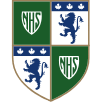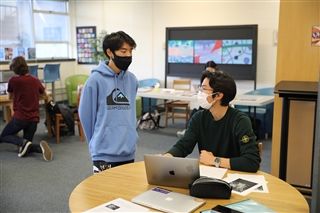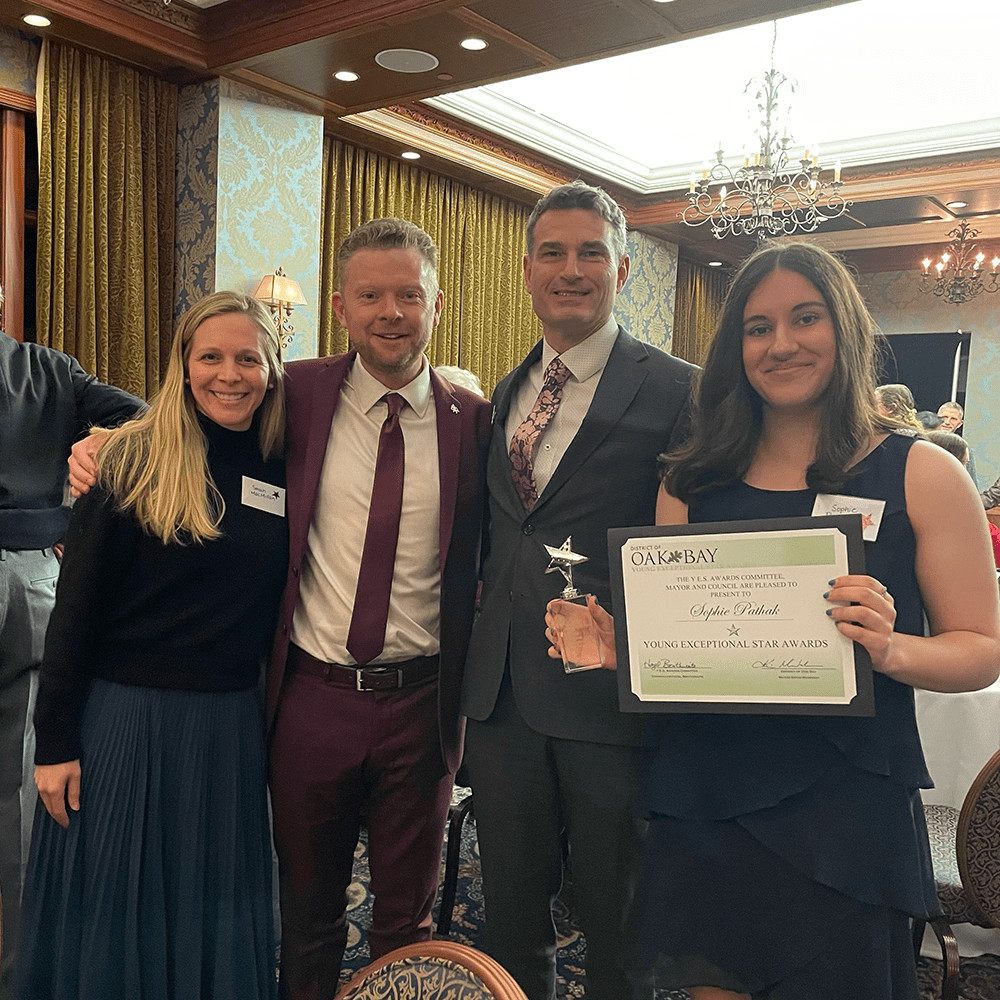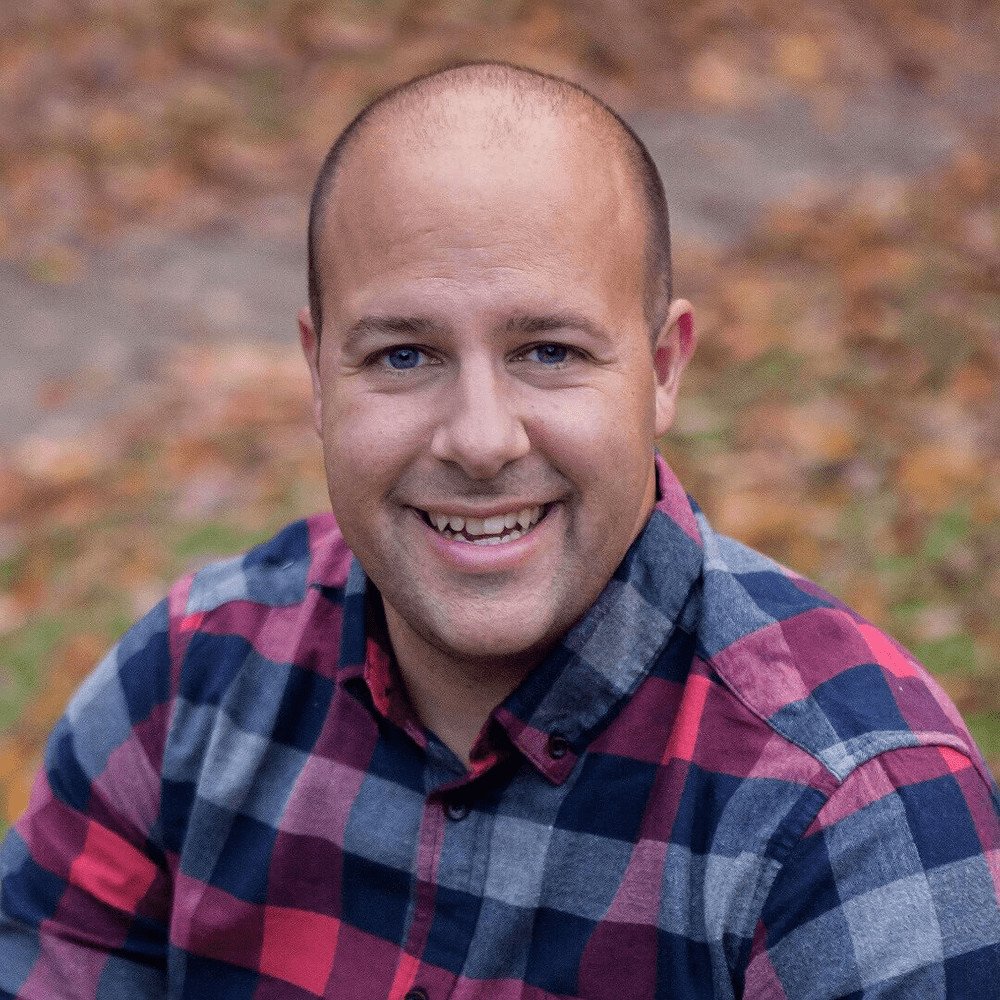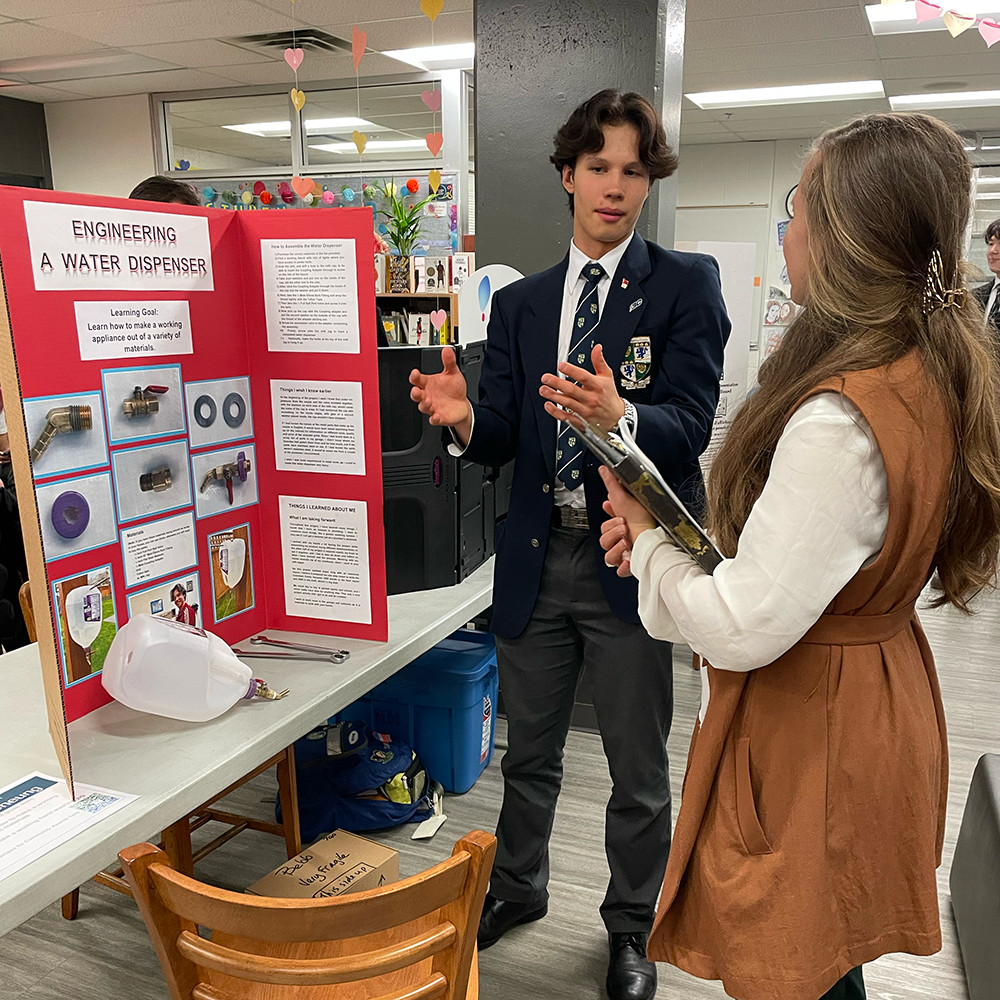What is Theory of Knowledge (TOK) at GNS? It’s a mandatory component for students completing the International Baccalaureate Diploma Programme and what many say is at the heart of it, but it is also available as a provincial course.
“It’s not about one particular subject, but rather how we justify knowledge claims in general about a variety of subjects,” explained Mr. Clint Lundgren, Theory of Knowledge, Language & Literature, English Literature Teacher.
The curriculum includes examples of all the different areas of study that are taught at Glenlyon Norfolk School. Those include physics, biology, chemistry, mathematics, history, theatre, literature and more. However, it also includes topics that aren’t normally taught, like ethics, religion and Indigenous knowledge.
It’s a multidisciplinary critical thinking course, with the central question being ‘How do we know?’ More broadly, the course is about how we know things and how our assumptions about knowledge define who we are.
“Our primary goal for the course is to encourage the students to look at what we call knowledge problems from different perspectives. When they graduate and leave GNS they will confront a complicated world with a lot of different points of view, so we want to teach them to be flexible problem-solvers and more rigorous critical thinkers,” said Mr. Lundgren.
The course revolves around student-led discussion, as they take on and explore different points of view and perspectives.
“TOK is structured so that it inherently respects them as learners, because it’s not a course where the teacher is coming in as the expert,” said Mr. Lundgren. “We are dealing with current events that are unfolding as we are discussing them, so no one is an expert in them right now. Their opinions are just as good as anyone else’s.”
The first lesson of the year that Mr. Lundgren teaches is about being wrong, which he says is one of the most important lessons to start TOK.
“For me, that’s the premise of the course. Not only is it okay to be wrong, but we need to be open to the possibility of being wrong so we can be creative and learn,” he said.
Because the course is driven by student discussion and participation, there is no set curriculum to it, but the course is really about teaching critical thinking skills that are applied to whatever is topical.
“In Theory of Knowledge the teacher is like a moderator, you set up the classes and the framework of the lessons, but ideally in the class the students are doing most of the talking,” said Mr. Lundgren.
For assessment at the end of Grade 11, there is an exhibition presented. Each student has to pick a knowledge question, from a list of 35 prompts. When they explore the question, they pick three examples or objects from their world that illustrate different aspects of that question and they prepare an approximately 300-word write-up on each object. For the first time this year, students are putting together displays where they will present their objects and discuss their questions.
In Grade 12, students write an essay to culminate their learning. At the start of the Grade 12 year, IB puts out six essay prompts for students to choose from, and they each write a 1,600-word essay on their chosen topic. The essay goes through a series of stages where students meet with their supervisor to go over their ideas, drafts and check-in as they complete it.
With everything learned from two years of Theory of Knowledge, Mr. Lundgren said he hopes students come out with certain critical thinking skills and a willingness to be open-minded and thoughtful.
“Hopefully it will teach them a knowledge framework, or a knowledge philosophy that will help them navigate a world that is increasingly full of information that is hard to assess,” said Mr. Lundgren. “They are leaving the school in the era of fake news and people arguing endlessly about everything. I think it’s never been more vital for high school students who will soon be voters to be rigorous critical thinkers and open-minded.”

